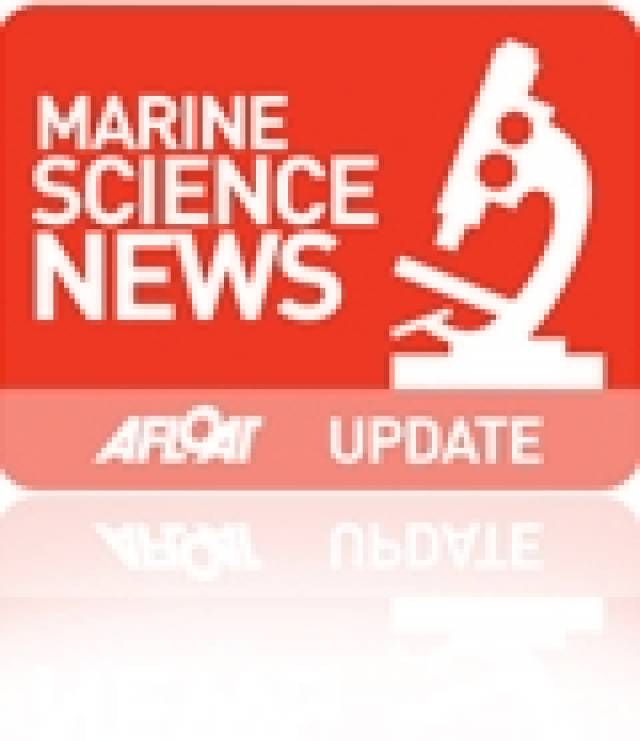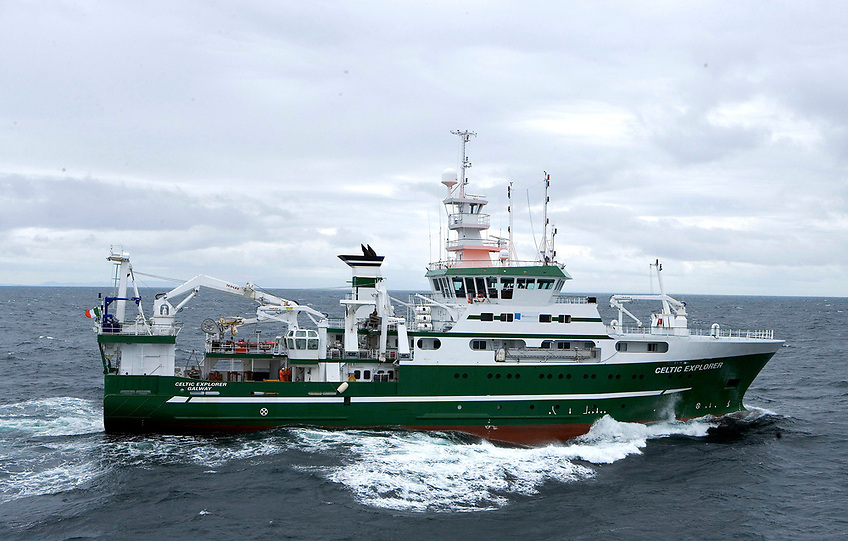#marinescience – Scientists from GMIT's Marine and Freshwater Research Centre will depart Galway today on board the RV Celtic Explorer to carry out the fourth dedicated survey of cetaceans on the continental shelf edge. The trip will determine if a distinct population or 'eco-type' of bottlenose dolphin exists in offshore waters, as suggested by DNA analysis, photo-identification and behavioural traits observed in previous surveys.
'Cetaceans on the Frontier,' an annual research cruise since 2008, lead jointly by Galway-Mayo Institute of Technology (GMIT) and the Irish Whale and Dolphin Group (IWDG) records the number and distribution of whales, dolphins and porpoises along the continental shelf edge. The region is an important habitat for cetaceans because of the rich food resources available from increased productivity caused by upwelling when nutrients are brought to the surface from the depths.
This project aims to identify particular areas of importance for cetaceans as well as other species such as seabirds, with this survey focusing in particular on the bottlenose dolphin.
GMIT Marine Scientist and lecturer Dr Joanne O'Brien, says: "While many people are familiar with coastal bottlenose dolphins that are resident in the Shannon Estuary, or those which occasionally venture into bays and harbours during summer months, little is known about their offshore counterparts."
Mr Conor Ryan, the chief scientist on this survey, and member of the Irish Whale and Dolphin Group, says, "The bottlenose dolphin is required to have strict protection under the EU Habitats Directive but this is difficult to achieve for animals living offshore as we know little about their ecology, movements and the threats that they may face."
"As in 2012, we will take skin samples from these dolphins by deploying a small boat from the Celtic Explorer using a biopsy darting system to collect skin samples for DNA analysis, under licence from the National Parks and Wildlife Service. We will photograph their uniquely marked dorsal fins and catalogue individuals' movements. We also hope to characterise their preferred habitat type, e.g. their preferred depth and distance from the shelf edge."
Cetaceans on the Frontier is an inter-disciplinary research cruise, and scientists specialising in seabird biology, plankton and micro-plastics will also be collecting data in order to determine how different species are interacting with their environment and with each other. Last year the bird team recorded a rare black-browed albatross, tens of thousands of kilometres from its native Southern Ocean.
The micro-plastics research team, based in GMIT, aims to investigate how prolific plastic pollution is in the ocean, particularly in deep waters far from the sources of dumping. Zooplankton (including jellyfish such as the mauve stinger) will be collected in small nets and analysed for chemical tracers called stable isotopes which help ecologists to model food-webs including the diets and even movements of larger predators such as fish, birds and cetaceans.
Scientists from GMIT, IWDG, BirdWatch Ireland, Queens University Belfast, National Oceanographic Centre Southampton, University College Cork and University of La Rochelle will spend two weeks at sea, zig-zagging along the shelf edge from Co. Donegal to Co. Cork. The survey is funded through the Marine Institute's National Research Vessel Ship –Time Programme 2013 supported by the Marine Research Sub-programme of the National Development Plan 2007–2013.
































































